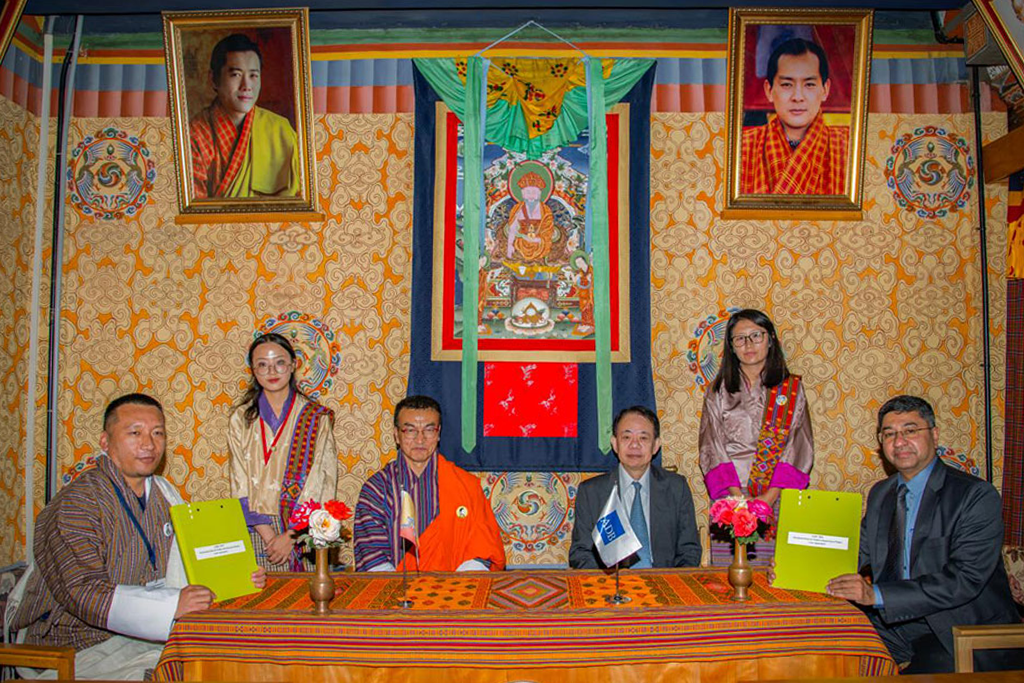The Druk Green Power Corporation (DGPC) has been awarded the Three-Star Gross National Happiness (GNH) of Business Certificate for its efforts to align its business operations with GNH values.
With a score of 54.54 percent, which reflects performance slightly above average, DGPC has successfully integrated the nine domains of GNH into its business practices.
Prime Minister Tshering Tobgay presented the certificate to DGPC during a ceremony held yesterday.
The award follows a comprehensive three-month evaluation conducted earlier this year by the Centre for Bhutan and GNH Studies (CBS), which involved interviews with 886 of DGPC’s 1,628 employees at the headquarter and six hydropower projects. The overall response rate was 88.2 percent.
The assessment evaluated DGPC’s performance across key domains, including psychological well-being, health, education, living standards, good governance, and ecological diversity.
While DGPC showed strong performance in areas such as employee compensation, gender equity, and social security, certain domains raised concerns.
Psychological well-being emerged as the weakest area in the assessment, with issues such as workplace discrimination, harassment, and job insecurity contributing to a score of just 28.5 percent in this domain. Verbal abuse, in particular, was identified as a significant concern, with 12.1 percent of employees reporting such behaviour.
Health risks were another area of concern, with around 78 percent of employees exposed to workplace hazards. Despite some successes in managing occupational stress and work-related injuries, the report highlighted the need for more robust safety protocols.
DGPC’s investment in employee development stood out, with a range of training programmes aimed at enhancing skills and fostering professional growth.
The Corporation’s performance in the living standards domain was commendable, demonstrating strong efforts to ensure adequate pay, gender equality, and comprehensive leave and social security benefits.
During the award ceremony, Prime Minister Tshering Tobgay acknowledged the challenge of balancing employee well-being with corporate profitability.
Lyonchhen expressed optimism that other organisations will follow DGPC’s example and pursue GNH of Business certification. “The private sector can also focus on employee well-being while ensuring profitability, aligned with GNH values,” he added.
The managing director of DGPC, Dasho Chhewang Rinzin, said that the nature of hydropower work, particularly in remote and challenging environments, had contributed to some of the issues raised in the assessment.
“Their workspace is mostly in the underground powerhouses and tunnels that are not always appealing to employees. DGPC’s efforts would be to improve and provide a conducive work environment so that employees remain with the company. The success of the company depends on these employees,” he said.
The assessment provided several recommendations for further enhancing DGPC’s alignment with GNH principles, including the implementation of stricter safety protocols, better management of workloads, and initiatives to improve employee well-being, such as wellness programmes and flexible work arrangements.
The GNH of Business framework, derived from the GNH Index, aims to encourage businesses to consider social, cultural, and environmental factors in their operations. The CBS developed specialised tools to assess companies across the nine GNH domains, focusing on worker happiness and overall organisational commitment to GNH principles.
In 2021, Bhutan Power Corporation Limited, Bank of Bhutan Limited, and Bhutan Telecom Limited were also awarded the GNH of Business Certificate.
Dechen Dolkar | Kuensel



